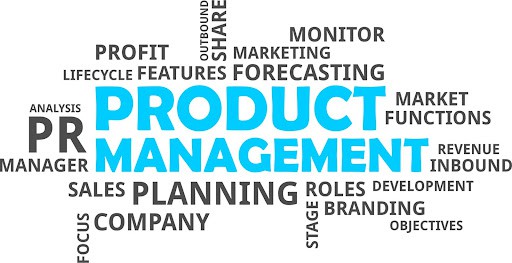

Have you ever wondered what a typical career path for a product manager looks like? You’re not the best one who believes this way. We’ve received a question from both aspiring and seasoned product managers, and the industry must comprehend how to create and encourage product management talent.
To develop the product managers, the finest product management organizations, in our view, employ the concept of “Product Leadership to Product Management.”
- The first track is about people management: these product managers are in charge of other product managers.
- The second track focuses on execution: these product professionals are in charge of the day-to-day work of the product.
We’ve prepared this article to give a high-level overview of the types of career development that product managers may expect to help bring more clarity around the product management career tracks.
Let’s start by talking about the issues that product organizations encounter as they grow and mature. After that, we’ll look at why career paths help product companies deal with these increasing pains.
Following that, we’ll go over each of these career tracks in greater depth, as well as the drawbacks that occur when firms don’t use career tracks. Finally, we’ll look at how product management compares to other types of careers.
So, let’s talk about the issues that product organizations face as they grow.
What Issues Do Growing Product Companies Have To Deal With?
Product organizations expand and adapt over time like any other organization or department. They encounter new hurdles at every stage of their development. When a product organization has three to four product managers on staff, the following issues arise.
- First and foremost, product manager nyc must collaborate with customers, makers, and other company stakeholders. When a company has more than a few product managers, developing separate “rules of engagement” is inefficient and ineffective. To scale the organization, someone from the product team must be in charge of all procedures, systems, and accountability for the entire team.
Furthermore, the more product managers you have on your team, the more likely there are product collisions when one PM’s job collides with that of another PM. Product managers may ship the same work if there is no overarching coordination.
- Second, as the organization expands, customers will request that it handle increasingly formidable challenges. To meet ever-increasing client expectations, the organization needs product managers with advanced problem-solving skills.
These two issues are related to its expansion, but they are not the same. The first issue is one of coordination; the second is one of talent.
Fortunately, the product organization’s career track neatly solves both problems. Companies can keep their focus and accelerate their momentum in the competitive landscape by developing a discrete way for PM personnel management and another dedicated track for PM execution.
What Are The Different Product Management Tracks?
The tracks refer to the fact that senior product management responsibilities are divided into two distinct ways.
The first path is more managerial. You’ll be responsible for managing other product managers on this track. It’s a track that focuses more on people management than on the day-to-day work of product management.
Starting from the most junior to the most senior, you can expect the following succession of titles on the management track:
- Group Product Manager
- Director of Product
- Vice President of Product
- Chief Product Officer
Of course, different firms will use other titles (for example, some may add “associate,” “assistant,” or “senior” to any of these titles), but this is the general development on the product management managerial track.
The second track places a greater emphasis on individual contributions. This program will continue to focus on the day-to-day aspects of product management rather than people management. While you will continue to mentor junior PMs, it will not be your primary focus.
From the most junior to the most senior, you can expect something along these lines on the individual contributor (IC) track:
- Principal Product Manager
- Staff Product Manager
- Distinguished Product Manager
Product professionals working in career track firms will often transfer between managerial and IC paths without sacrificing their pay or position.
Specialties to keep in mind: first, you won’t be promoted to either track until you’ve worked your way up to senior product manager.
What is the reason for this? You don’t have the breadth of experience to effectively supervise other PMs if you aren’t currently a senior PM.
And, if you’re not yet a senior PM, you lack the experience needed to take on some of the company’s most risky product investments.
Second, you may find that corporations utilize a numbering system rather than using clear titling.
Now, we have a more clear vision of what a job in product management entails.
To Wind It Up!
You should anticipate career paths as a product manager. You’ll be responsible for supervising other product managers and developing the organization’s overall strategy and processes on the management track. On the individual contributor route, you’ll work on the company’s behalf to solve more extensive and more complex problems.
Both courses are fulfilling in their way, and you should consider which one best meets your needs.
Look for firms like PALARINO PARTNERS that provide product managers career paths whenever available. If you work for a company that only offers one career path, you should consider whether or not you’d be happy with it.
PALARINO PARTNERS think in empowering people to achieve their best job as Product Managers. Don’t hesitate to contact us if you need assistance deciding on promotions or career paths.



